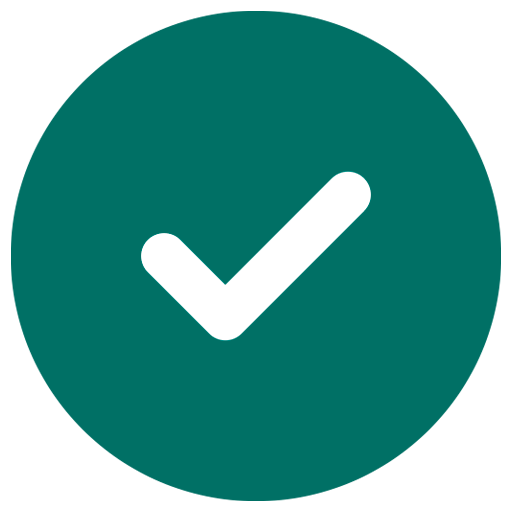Landing a job interview can feel like winning a mini lottery—but closing the deal and actually getting the offer? That’s a whole different ballgame. Over my career, I’ve sat on both sides of the table: sometimes nervously waiting for an interviewer to ask me a question, and other times peering down from the interviewer’s chair, silently grading answers and presence. Along the way, I picked up five practical tips that make a world of difference. These aren’t rehearsed soundbites you’ll find on a thousand blogs—they’re grounded recommendations born from real conversations, awkward moments, and genuine human connection.
1. Do Your Homework—But Don’t Become a Robot
I remember one candidate who rattled off every single fact about our company’s founding date, revenue numbers, and our CEO’s weekend hobby. It was technically impressive, but after five minutes I realized I was listening to a walking Wikipedia entry. Research matters—but the real power comes from weaving those nuggets into a relatable narrative.
- Dig deep, but stay relevant. Know the company’s mission, products, and recent milestones. If you’re interviewing for a marketing role, mention that new campaign you admired and why it resonated with customers.
- Find the connection. Maybe the company just launched a sustainability initiative—and you volunteered at a local cleanup event last spring. Share that personal link. It shows you’re not just interested in their brand, but in what they stand for.
- Prepare thoughtful questions. Ask about the team’s biggest challenge next quarter, or how success is measured in the first six months. This signals genuine curiosity, not just the desire to tick off a bullet point.
Ultimately, your research is the springboard for authentic dialogue. Don’t recite facts—turn them into meaningful questions and stories.
2. Mind Your Body Language—It Speaks Louder Than Words
In one interview, my palms were sweaty, my foot wouldn’t stop tapping, and I looked like I was auditioning for a tap-dancing gig. Needless to say, it did nothing to calm my nerves. Body language is a silent script that can either bolster your confidence or betray your jitters.
- Open posture. Sit up straight, shoulders relaxed. Avoid crossing your arms—it can come across as defensive. Lean in slightly to show engagement but don’t invade personal space.
- Steady eye contact. Aim for direct but gentle eye contact. Looking down too often signals insecurity; staring too intently might feel unsettling. Find a balance that feels natural.
- Controlled gestures. Use hand movements sparingly to emphasize points, but keep them calm. If you’re fidgety, place your hands in your lap or lightly on the table.
- Smile genuinely. A warm smile at the start and end of your interview sets a friendly tone. It also helps you feel more relaxed and present.
By aligning your body language with your words, you project poise and authenticity—two qualities interviewers remember.
3. Tell Stories, Not Slides
One of the hardest lessons I’ve learned is that competence isn’t just a checklist of skills, it’s the story of how you’ve applied those skills under pressure. When an interviewer asks “Tell me about a time you faced a challenge,” don’t default to a dry list of bullet points. Tell a mini story with a clear beginning, middle, and end.
- Set the scene. Briefly describe the context: your role, the environment, and the stakes.
- Highlight your action. Focus on the specific steps you took. Use “I” not “we” when describing your contributions—interviewers want to know what you personally accomplished.
- Emphasize the outcome. Quantify results if possible: “My process cut our project turnaround time by 20%,” or “My design increased user engagement by 15% within a month.”
- Reflect. Add a sentence about what you learned or how it shapes your approach now. It shows humility and growth.
Stories help you shine, making your achievements tangible. Plus, they’re more engaging than a recited resume.
4. Practice Active Listening—The Interviewer Wants to Talk Too
Too often, candidates buzz so loudly in their own heads that they forget interviews are two-way conversations. I once watched a candidate answer every question in a marathon monologue—by the time they finished, I had almost no time to ask follow-up questions or learn about their personality.
- Pause before answering. Take a breath, ensure you’ve fully understood the question. If needed, ask for clarification: “Do you mean how I handled tight deadlines or how I managed team conflict?”
- Acknowledge points. When the interviewer shares something—maybe about the team structure or a recent project—nod or briefly mention: “That sounds like an exciting challenge!”
- Build on what you hear. If the interviewer reveals their own experience or insight, connect your answer to it: “I appreciate that perspective. In my previous role, we faced a similar issue, and here’s what I learned…”
- End with a question. After answering, you might ask: “Does that align with the experience you’re looking for?” or “I’d love to hear more about how your team handles X.” This invites a richer dialogue.
Active listening signals respect and adaptability—traits that every employer values.
5. Follow Up with Heart—And Strategy
Most candidates send a generic “Thank you for your time” email and call it a day. Instead, treat your follow-up as an extension of your interview story.
- Send a personalized thank-you note within 24 hours. Reference specific points from the conversation: “I enjoyed discussing how your team leverages data analytics to shape marketing campaigns.” This shows you were fully present.
- Reiterate your enthusiasm and fit. Briefly remind them why you’re excited about this role and why your background aligns. Keep it short—one or two sentences.
- Offer additional value. If you mentioned a project during the interview, you could attach a one-page summary or link to a relevant sample. This demonstrates initiative and resourcefulness.
- Connect on LinkedIn (if appropriate). A thoughtful connection request, mentioning your conversation, helps you stay on their radar and grow your network.
A strong follow-up keeps you top of mind and shows that you care about the opportunity, beyond just getting one more job on your resume.
Bonus Tip: Embrace the Unexpected
No matter how prepared you are, interviews can take surprising turns. Maybe the hiring manager asks an off-the-wall question like “If you were a flavor of ice cream, which would you be and why?” or there’s a technical glitch during a video interview. Your ability to laugh, adapt, and stay composed often matters more than the perfect answer.
When thrown a curveball:
- Pause and breathe. Give yourself a moment to collect your thoughts. A brief pause feels thoughtful, not awkward.
- Be honest. If you don’t know the answer, say so: “That’s a great question—I haven’t encountered that before, but here’s how I’d approach figuring it out…”
- Inject a bit of personality. If the question allows, share something lighthearted: “I’d be pistachio—solid, dependable, and a little bit unexpected.”
Recruiters and managers remember resilience and authenticity. When you show up as a genuine person, not a script, you’re already ahead of the pack.
Wrapping Up
Interviews are nerve-wracking, but they’re also an opportunity to share your story—your real, unpolished self, complete with quirks, lessons learned, and future ambitions. By researching thoughtfully, minding your nonverbal cues, crafting compelling stories, listening actively, and following up with purpose, you’ll turn each interview into a chance to connect, resonate, and ultimately, succeed.
Next time you walk into that conference room or log into Zoom, remember: the best interview isn’t the one where you recite the perfect bullet points. It’s the one where you leave the table knowing you made a genuine human connection. And that, above all, is what lands offers and launches careers. Good luck—you’ve got this!
In today’s job market, virtual interviews have become increasingly common, adding a new layer of complexity to the process. Ensure your technology is reliable, your background is professional, and your lighting is flattering. Practice speaking clearly and maintaining eye contact with the camera to simulate in-person engagement.
Additionally, consider the growing importance of soft skills in interviews. Employers are placing more emphasis on emotional intelligence, adaptability, and cultural fit. Highlight these attributes through examples and stories that demonstrate your ability to work well with others and navigate change effectively.
Finally, be aware of the increasing trend of companies using AI-driven tools to assess candidates. Familiarize yourself with common AI interview platforms and practice responding to questions in a concise and articulate manner to ensure your responses are accurately captured and evaluated.


 United States
United States Canada
Canada Mexico
Mexico Argentina
Argentina Brazil
Brazil Peru
Peru Japan
Japan South Korea
South Korea United Arab Emirates
United Arab Emirates France
France Germany
Germany Italy
Italy Portugal
Portugal Spain
Spain Sweden
Sweden Switzerland
Switzerland United Kingdom
United Kingdom Australia
Australia



